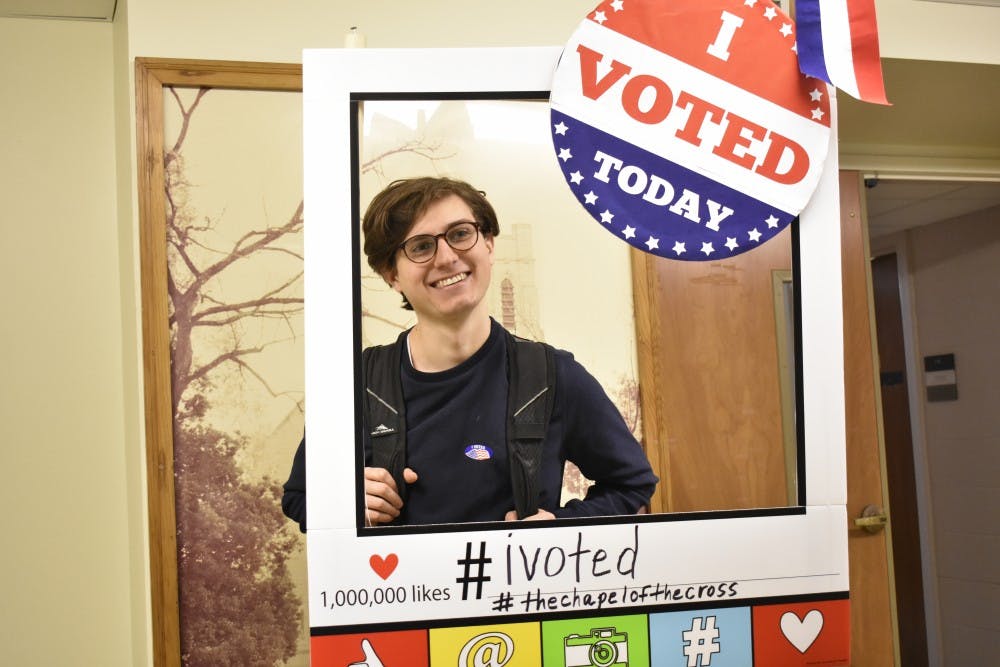A 2015 study from researchers at the University of California, Berkeley and Wilfrid Laurier University showed voters were affected by “choice fatigue” on a ballot with many races or questions. They found roll-off increases incrementally as a race's position is moved down the ballot.
When voters answered questions lower on the ballot, they were more likely to abstain from the contest or take shortcuts, like voting for the first candidate listed or choosing the option that enforces the status quo, such as rejecting referendums.
Cohen said the fact that 2018 is a midterm election combined with a potential roll-off might impact voter participation. In 2014, only 44 percent of registered voters in North Carolina submitted a ballot. 2018 is also a “blue moon” election for the state, meaning there is no race for president, governor or senator.
Low vote counts toward the end of the ballot make it easier for a few votes to sway a race.
Progress N.C. Action is an independent expenditure PAC, which is affiliated with Progress N.C., sponsored a series of advertisements meant to encourage voter turnout by depicting a fictitious state representative who was elected with low voter counts because of roll-off.
Robert Howard, spokesperson for the North Carolina Democratic Party, said voter fatigue could increase the likelihood that the six constitutional amendments on the ballot will pass.
“I think there’s a reason that the Republican legislature moved the statewide judicial contests to the end of the ballot,” Howard said. “I think they were trying to rig it in their favor so that voters wouldn’t make it all the way to the end of the ballot.”
Donald Bryson, president of the Conservative Civitas Institute in Raleigh, said he doesn’t think roll-off will affect the proposed amendments at all.
A University of Wisconsin-Eau Claire study from 2002 found voter roll-off is affected by a race's position on the ballot, but also whether or not the race is contested and competitive.
“Voter fatigue or roll-off tends to happen when there is very little information about what is on the ballot, and so you’ll see more roll-off in nonpartisan races than you will on ballot referendums,” Bryson said. “If you look back to the 2012 statewide primary, the last time we had a constitutional amendment on the ballot, more people voted for the amendment than in the presidential primary.”
To get the day's news and headlines in your inbox each morning, sign up for our email newsletters.
Orange County has only one nonpartisan race this year for Soil and Water Conservation district supervisor.
Bryson said education is key, and people tend to vote more when they have more information about a race.
“I think there’s been a lot of information both for and against these amendments which is good, because public debate is essential in a direct democracy,” he said. “I doubt there will be very much drop-off for these amendments.”
Howard said educating voters has been a priority for the Orange County Democratic Party during this election.
“We’re making sure voters understand the importance of making it all the way through the ballot,” Howard said. “We’ve made it a point this year to make sure to tell people that there are very important races and ballot measures at the bottom of the ballot that will affect everything from separation of power to whether public education can be affected in the future to our future voting laws.”
Cohen said ballots across the state have been even longer than the Orange County ballot, with Wake County residents voting on 31 ballot items this year.
While long ballots can be daunting, Cohen said being intentional about being an informed voter is the way to combat roll-off.
“We want to make sure people can make it all the way through the ballot and are informed about the races they are voting on,” Howard said.
@OlivinOnAPrayer
city@dailytarheel.com



